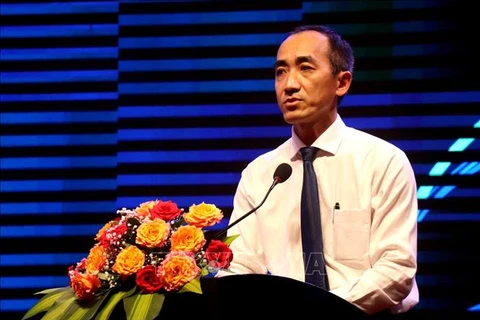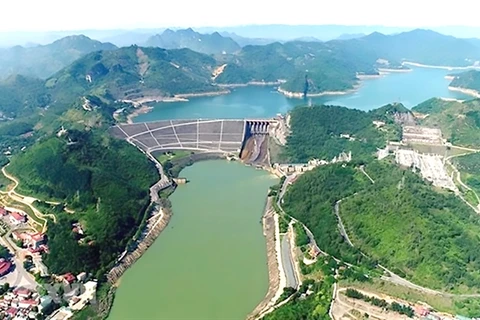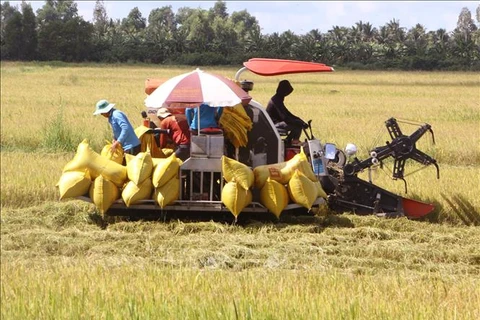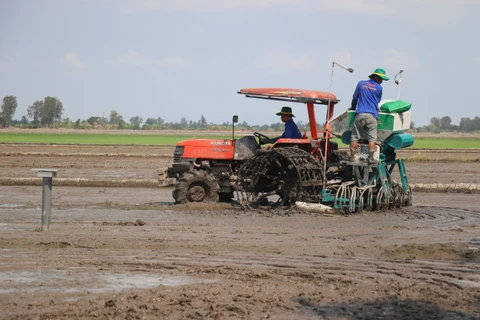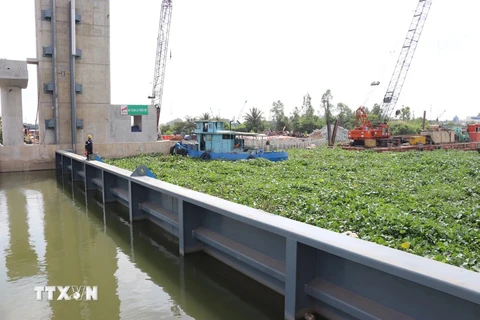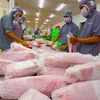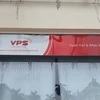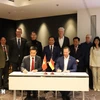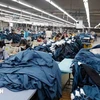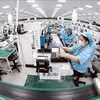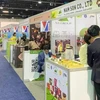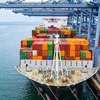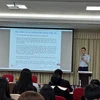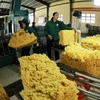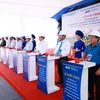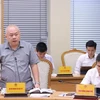An Giang (VNA) – The Mekong Delta province of An Giang and the SNV Netherlands Development Organisation on April 15 held a workshop to introduce the project ‘Transforming Rice Value Chains for Climate Resilient and Sustainable Development in the Mekong Delta’ (TRVC).
The project is implemented in three key rice-growing provinces in the Mekong Delta - An Giang, Kien Giang, and Dong Thap in the 2023 – 2027 period. Under the project, An Giang will be provided with about 22 billion VND (over 873,500 USD) to develop the rice value chains and adopt rice farming methods that are better resilient to climate change and have low carbon emissions.
Director of TRVC Project Tran Thu Ha said that the project will support ten businesses that connect with about 200,000 small farming households and 50-60 cooperatives in the three provinces with the aim of transforming to low-emission rice production on a total area of over 200,000 ha.
She said the project will help reduce input costs by at least 15%, reduce the amount of fertilisers and chemical pesticides by 20-30%, save 20-40% of water, reduce 200,000 tonnes of CO2 and ensure at least 30% profit for farmers. All results of the project will directly contribute to the 1 million ha of high-quality rice project launched by the Ministry of Agriculture and Rural Development.
The TRVC project will start from the summer-autumn rice crop this year. The project will provide cash incentives worth 57 billion VND to five organisations and individuals that achieve the goals of greenhouse gas emissions reduction with emissions verified by independent inspection agencies.
Deputy Director of An Giang province’s Agriculture and Rural Development Department Ton That Thinh said that in the province’s rice production, the use of input materials like seeds, fertilisers and pesticides is still unreasonable, which affects production costs. Moreover, local enterprises just cooperate with farming households to buy rice for 30,000-35,000 ha per season and 100,000 ha per year, which is too modest compared with the province’s rice area of 600,000 - 620,000 ha per year.
Thinh said due to the impacts of climate change, rice productivity in the province has not increased much over the years.
The TRVC project is expected to open a new direction for the province's rice production, he said, adding that the project is consistent with the province's participation in the project on one million ha of high-quality rice production with low emissions./.
The project is implemented in three key rice-growing provinces in the Mekong Delta - An Giang, Kien Giang, and Dong Thap in the 2023 – 2027 period. Under the project, An Giang will be provided with about 22 billion VND (over 873,500 USD) to develop the rice value chains and adopt rice farming methods that are better resilient to climate change and have low carbon emissions.
Director of TRVC Project Tran Thu Ha said that the project will support ten businesses that connect with about 200,000 small farming households and 50-60 cooperatives in the three provinces with the aim of transforming to low-emission rice production on a total area of over 200,000 ha.
She said the project will help reduce input costs by at least 15%, reduce the amount of fertilisers and chemical pesticides by 20-30%, save 20-40% of water, reduce 200,000 tonnes of CO2 and ensure at least 30% profit for farmers. All results of the project will directly contribute to the 1 million ha of high-quality rice project launched by the Ministry of Agriculture and Rural Development.
The TRVC project will start from the summer-autumn rice crop this year. The project will provide cash incentives worth 57 billion VND to five organisations and individuals that achieve the goals of greenhouse gas emissions reduction with emissions verified by independent inspection agencies.
Deputy Director of An Giang province’s Agriculture and Rural Development Department Ton That Thinh said that in the province’s rice production, the use of input materials like seeds, fertilisers and pesticides is still unreasonable, which affects production costs. Moreover, local enterprises just cooperate with farming households to buy rice for 30,000-35,000 ha per season and 100,000 ha per year, which is too modest compared with the province’s rice area of 600,000 - 620,000 ha per year.
Thinh said due to the impacts of climate change, rice productivity in the province has not increased much over the years.
The TRVC project is expected to open a new direction for the province's rice production, he said, adding that the project is consistent with the province's participation in the project on one million ha of high-quality rice production with low emissions./.
VNA

